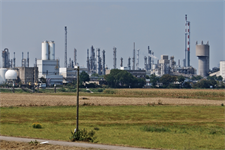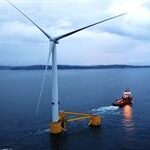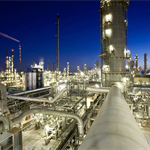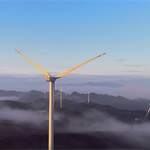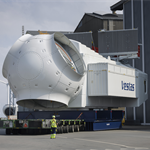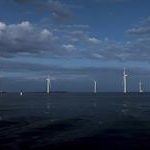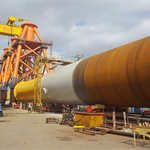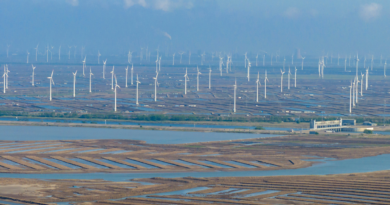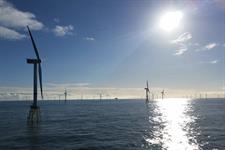RWE plans 2GW offshore wind to supply chemical giant BASF
Energy Disrupter
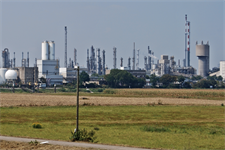
RWE plans to build a 2GW North Sea offshore wind farm to supply chemicals giant BASF and other industrial customers with green electricity and green hydrogen.
BASF plans to use green electricity to power electrically heated steam cracker furnaces to produce petrochemicals and to power heat pumps at its plant in Ludwigshafen in the inland state of Rhineland-Palatinate, Germany.
RWE also plans to use 20% of the project’s output to power a roughly 300MW electrolyser system to supply BASF, and potentially other industrial customers, with green hydrogen. This green hydrogen could be distributed using existing infrastructure, the company claimed.
RWE has not given a precise location of the wind farm, but a company presentation suggests it would be in the German North Sea, close to the country’s border to the west with the Netherlands
At BASF, the green electricity could save up to 2.8 million tonnes of CO2 annually, while the green hydrogen could save up to 1 million tonnes of CO2 per year.
The German energy company’s CEO Markus Krebber explained the offtake agreements with BASF — and other customers — mean there would be no need for public subsidies.
However, the project partners added that there would need to be the right policy frameworks and energy infrastructure in place for the project to be delivered by its 2030 target date.
This includes offshore wind tenders that envisage projects being commissioned before 2030, green electricity not being subjected to a levy under Germany’s Renewable Energy Sources Act, known as EEG, and green hydrogen production having an appropriate regulatory framework in place.
RWE’s chief executive Krebber added that he was keen to begin discussions with the relevant authorities for project permitting and connection to the onshore grid, and to make sure sufficient network capacity is available.
RWE expects the wind farm and electrolyser would require a €4 billion investment, and expects BASF to pay about 49%.
Meanwhile, BASF chairman Martin Brudermüller said the company may need to adapt some of its technology for using green hydrogen, but would not be drawn on costs.

